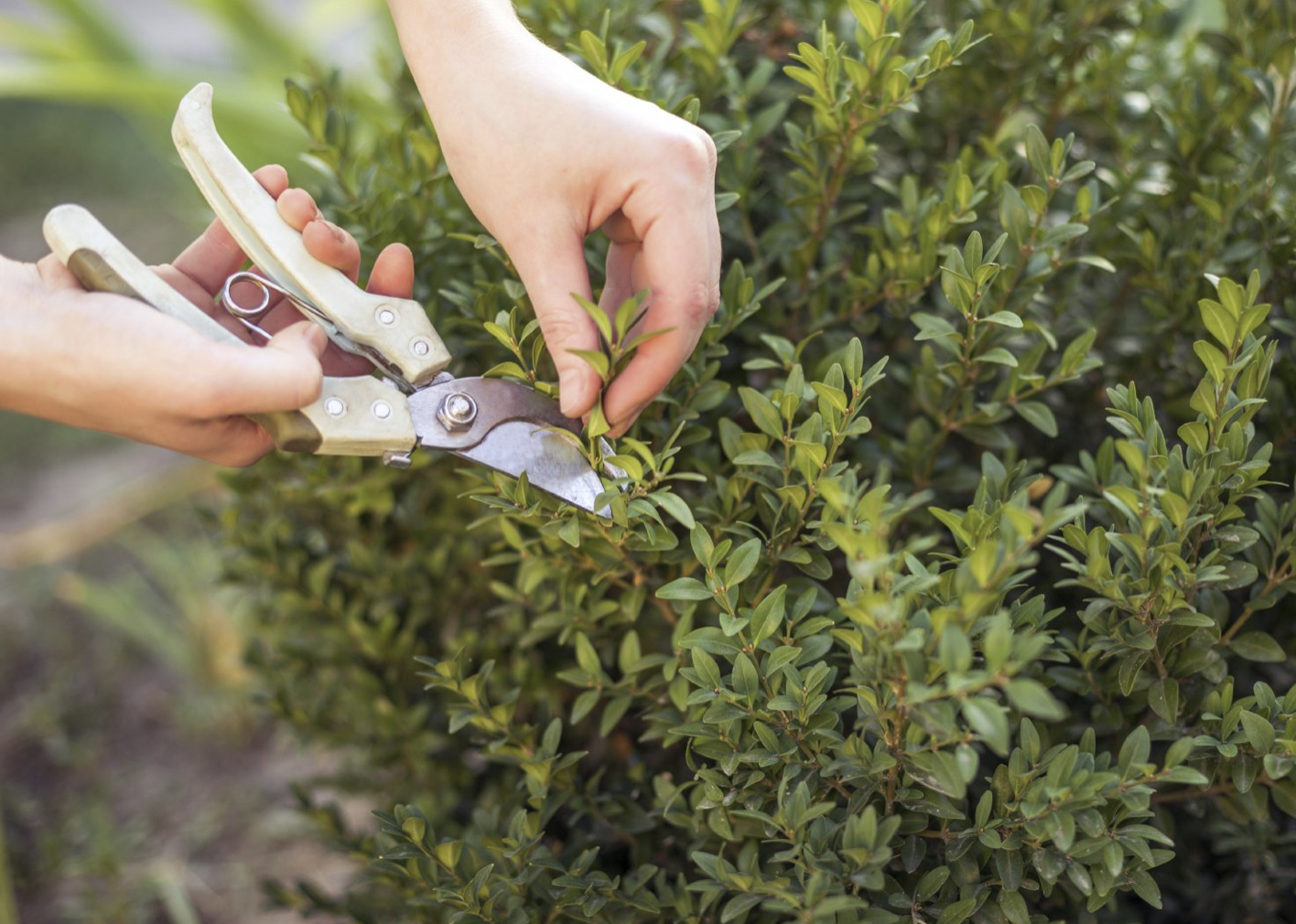Garden tasks that don't need hours of your time
Keep your outside space in good shape by doing a little but often

You don't have to garden for hours at a time. A bit of watering here and pruning there will keep your garden or outside space in good shape
Gardens are long-term projects and the key to their success is to maintain small jobs often and be patient with results. Instead of feeling overwhelmed at the upkeep, enjoy being outside with tasks that take anywhere between 10 to 30 minutes. And if you decide to grow a vegetable garden or plant fuchsias, don’t do everything in one day. Taking your time means the process can be more enjoyable, says Calum Maddock, garden expert at Home How (.co.uk).
1. Prune hedges
When hedges overgrow they can easily become a nuisance and create large patches of shade. Pruning them is vital to prevent dead and dying branches from harming nearby plants and people. This can take up to an hour depending on the size, but regular trims will maintain a neat look. Pruning times vary dependent on the type of hedge you have. For deciduous hedges, formative pruning should take place in winter after planting and for the first two years thereafter. For evergreen hedges, formative pruning should take place in the spring and the first two years after planting. Every summer you should spend an hour or so giving all hedges maintenance pruning. When undertaking any work, check that there are no birds nesting, the season is usually considered to run from March to August.
2. Sow seeds
Growing veg doesn’t have to be a big task. Simply use a few pots or containers, fill them with compost and start sowing seeds. It’s a quick, inexpensive and fun way to grow new hardy plants. Potatoes, peas and strawberries are easy to start with if you don’t have experience. A large area isn’t a necessity, crops such as radishes grow well in containers. Minimal equipment is required, all you need are the basics for germination: warmth, moisture and oxygen. Fill your pots with general compost and follow the instructions on the packet for the best way to sow seeds, they are usually spread thinly. Cover with more compost and add some water. Most flowers and vegetables need a warm, sheltered area that attracts sun, as this keeps the compost moist.
3. Watering
Watering is vital to growing plants, and if you get it just right, it can take up to 20 minutes. Before watering your plants, use your finger to check if the soil is moist, watery or dry. Cactus and succulents are the only plants that survive with infrequent watering. Plants in containers will need more watering than those in borders. Understand these key points by keeping a watering schedule, this will encourage longevity into the lifespan of plants. Plants depend on even moisture, keeping consistent with your timings will promote root growth. As a rule of thumb, water cooled soil in the evening as opposed to in the day when less water will evaporate.
A quick tip for thirsty plants such as tomatoes is to put a flowerpot filled with water in the soil alongside them. The water will soak down into the soil, meaning you can water a little less frequently.
4. Clean your patio
Decluttering your patio or seating area can take up to 40 minutes and will refresh your entire outdoor space! Split the workload into sections to maximise your time. Move all your pots and furniture to one side and brush away debris with a thin bristle brush. To remove all traces of dirt, mix soap and water or patio cleaner and scrub all over for a clean finish. If your patio has weeds, spray weed killer or boiling water directly onto them. Avoid prising them out otherwise more weeds will have space to grow.
5. Remove tired plants
Depending on your garden size, removing old plants can take up to 40 minutes. No matter how hard you try to prevent them, they will appear. If you have old shrubs or flower plants that need reviving, don’t be afraid to remove them. Old looking plants can have a negative impact on the entire look of your garden. Weed killers will help you eliminate as many unwanted plants as you have, ensure you read the labels to see which product will work best for you. Avoid ripping the plants out of the ground as you will deprive your soil microbes of a good meal and reduce your long-term soil fertility.